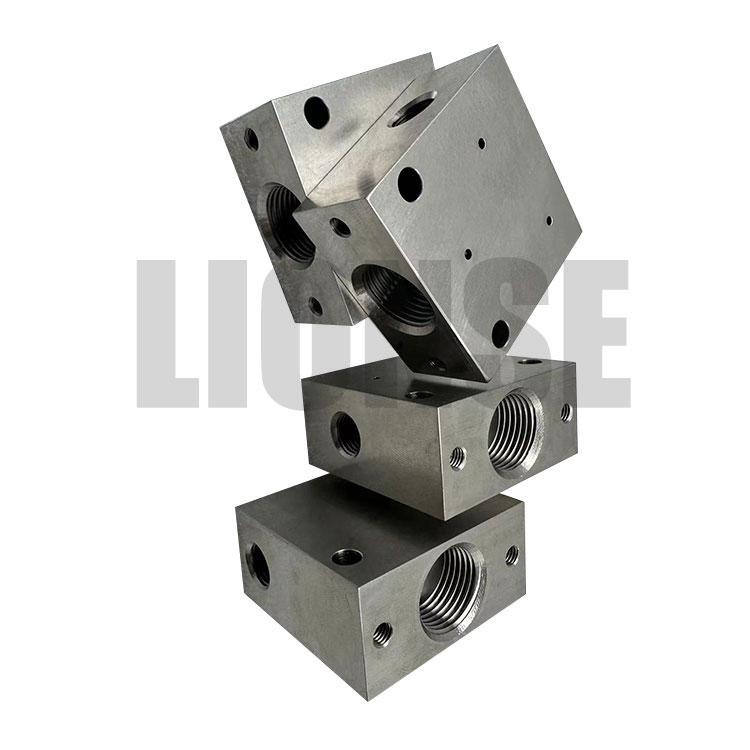Precision Grinding Quality Control and Measurement Methods
2025-09-01
Precision grinding is a critical manufacturing process that ensures components meet exact specifications and perform reliably in demanding applications. At Lionse, we specialize in producing high-quality precision grinding parts through advanced technology, rigorous quality control, and meticulous measurement protocols. This article provides an in-depth overview of our quality assurance processes, detailed product parameters, and the methods we use to guarantee superior performance and durability. Whether you are in the aerospace, automotive, medical, or industrial sector, understanding our approach will help you appreciate the value we bring to every project.
The Importance of Quality Control in Precision Grinding
Quality control is the backbone of precision grinding. Without stringent checks and balances, even the most advanced grinding techniques can result in parts that fail to meet required tolerances or perform as expected. At Lionse, we implement a multi-layered quality control system that spans from raw material selection to final inspection. This ensures that every precision grinding part we produce adheres to international standards such as ISO 9001 and AS9100, providing our clients with components they can trust.
Our quality control process begins with the selection of raw materials. We use only high-grade metals and alloys, sourced from reputable suppliers, to ensure optimal mechanical properties and longevity. Each batch of material undergoes chemical composition analysis and mechanical testing to verify its suitability for precision grinding.
Once the materials are approved, they move to the grinding phase, where our state-of-the-art CNC grinding machines operate under tightly controlled conditions. Throughout the grinding process, in-process inspections are conducted to monitor critical dimensions and surface characteristics. This proactive approach allows us to identify and rectify any deviations in real-time, minimizing waste and ensuring consistency.
After grinding, each part undergoes a final inspection using advanced measurement equipment. Our technicians check for dimensional accuracy, surface finish, geometric tolerances, and material integrity. Only parts that pass every checkpoint are approved for shipment.
Key Measurement Methods for Precision Grinding Parts
To ensure the highest level of accuracy, we employ a variety of measurement techniques tailored to the specific requirements of each project. Below are some of the most commonly used methods in our quality assurance protocol:
-
Coordinate Measuring Machine (CMM)
CMM is used for measuring complex geometries with high precision. It provides accurate data on dimensions, shapes, and positions of features such as holes, slots, and contours. -
Surface Roughness Testers
These devices measure the surface finish of precision grinding parts, ensuring it meets specified roughness averages (Ra) and other parameters. -
Optical Comparators
Ideal for inspecting profiles and outlines, optical comparators magnify parts onto a screen for easy comparison against digital templates. -
Hardness Testers
We use Rockwell, Vickers, and Brinell testers to verify the hardness of materials, ensuring they meet required specifications for wear resistance and durability. -
Microscopy and Digital Imaging
High-resolution microscopes and digital imaging systems allow for detailed inspection of surface conditions, micro-cracks, and other imperfections.
Detailed Product Parameters for Precision Grinding Parts
Our precision grinding parts are manufactured to meet a wide range of industrial applications. Below, we have outlined key parameters that define our products. These parameters ensure that our components deliver exceptional performance, reliability, and longevity.
Materials We Work With:
-
Stainless Steel
-
Carbon Steel
-
Aluminum
-
Titanium
-
Ceramics
-
Plastics and Composites
Standard Tolerances:
We achieve tolerances as tight as ±0.0001 inches (±0.0025 mm) for critical dimensions, ensuring parts fit and function as intended.
Surface Finish Capabilities:
Our grinding processes can achieve surface finishes as smooth as 0.1 µm Ra, depending on the material and application requirements.
Common Geometries and Features:
-
Cylindrical surfaces
-
Flat surfaces
-
Complex contours
-
Threads and grooves
-
Micro-sized features
To provide a clearer understanding, here is a table summarizing our capabilities:
| Parameter | Capability Range | Typical Applications |
|---|---|---|
| Dimensional Tolerance | ±0.0001" to ±0.0005" | Aerospace, Medical Devices |
| Surface Finish (Ra) | 0.1 µm to 1.6 µm | Automotive, Precision Instruments |
| Maximum Part Size | Up to 24" in diameter | Industrial Machinery, Energy Sector |
| Material Hardness | Up to 65 HRC | Tooling, Defense Industry |
| Grinding Types | Surface, Cylindrical, Centerless | Various High-Precision Industries |
Why Choose Lionse for Your Precision Grinding Needs?
With decades of experience in the industry, Lionse has built a reputation for excellence and reliability. Our commitment to quality is evident in every step of our process, from initial design support to final delivery. We work closely with our clients to understand their unique requirements and provide customized solutions that meet their exact needs.
Our team of skilled engineers and technicians leverages the latest technology and best practices to deliver precision grinding parts that exceed expectations. We understand that in industries where failure is not an option, there is no room for compromise. That’s why we prioritize accuracy, consistency, and durability in everything we do.
Conclusion
Precision grinding is both an art and a science, requiring expertise, advanced equipment, and unwavering attention to detail. At Lionse, we take pride in our ability to deliver components that meet the highest standards of quality and performance. Our comprehensive quality control and measurement methods ensure that every part we produce is worthy of your trust.
If you are looking for a partner who values precision as much as you do, we invite you to reach out to us. Let’s discuss how we can support your projects with our expertise and high-quality precision grinding parts. For inquiries or to request a quote, please email us at [email protected]. We look forward to collaborating with you!
